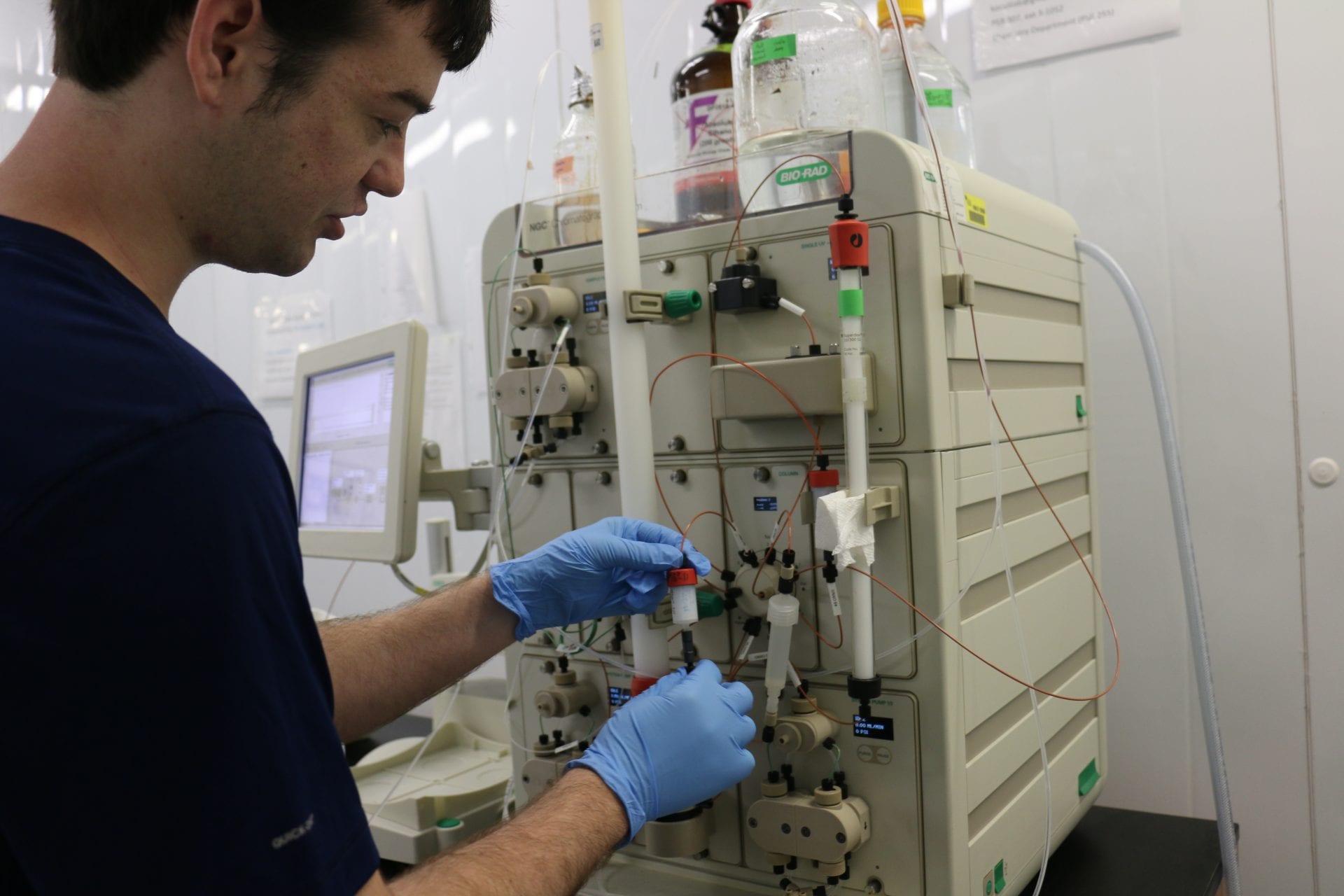NSF Funded Research Could Help Cure Disease

Chemistry doctoral student Riley Gentry was awarded the Graduate Research Fellowships Program (GRFP) by the National Science Foundation (NSF) in spring 2017.
Out of the 13 thousand national applicants representing a wide range of scientific disciplines, only 15 percent were chosen for the award. Gentry provided a personal statement, a research proposal and letters of recommendation that all contributed to his great achievement.
His research proposal focused on ribosome assembly. The ribosome is the macromolecule responsible for protein production in every living system on earth.
“The ribosome consists of two subunits,” Gentry explained. “A large subunit and a small subunit.”
Gentry’s most recent paper established for the first time that large subunit ribosome assembly in bacteria occurs through multiple pathways. He was able to trap intermediates in different pathways of large subunit ribosome assembly. Each subunit is composed of many parts. Intermediates are incomplete subunits missing some of the parts. His NSF proposal focuses on biophysical characterization of these intermediates.
“My proposed research has the potential to help facilitate the design of drugs for human diseases, like cancer, produced by misassembled ribosomes,” Gentry explained.
According to the World Health Organization, antibiotic resistant bacteria is one of the greatest problems that humanity faces. Because of this, Gentry said novel antibiotics are of great public health interests.
According to the NSF website, recipients of this award are well on their way to contributing significantly to research, teaching and innovations in science and engineering. The fellows are also crucial to advancing the nation’s technological infrastructure and national security as well as the economic well-being of society.
Gentry is already contributing significantly to research, with three publications already produced from his academic work. According to Gentry, he owes much of his success to his graduate advisor, Assistant Professor Eda Koculi, Ph.D., who has provided him with exceptional guidance throughout his research.
The support of Gentry and his work is evident throughout his academic career. His undergraduate degree in biomedical sciences from UCF was supported by the National Merit Scholarship program. And his first year of graduate school at UCF was supported by the Presidential Fellowship.
“My success here at UCF has been a culmination of hard work and an incredible amount of support for which I am grateful,” Gentry said.
After graduation, Gentry plans to pursue a post-doctoral research position. His long-term career goal is to obtain a faculty position in a research institution where he would both lead a research group and teach.
